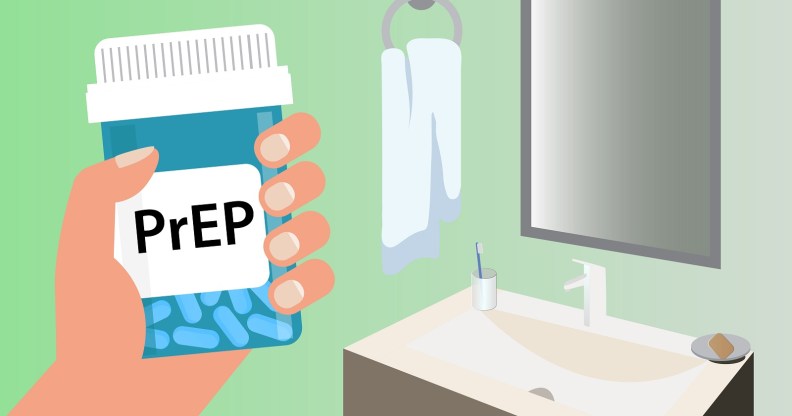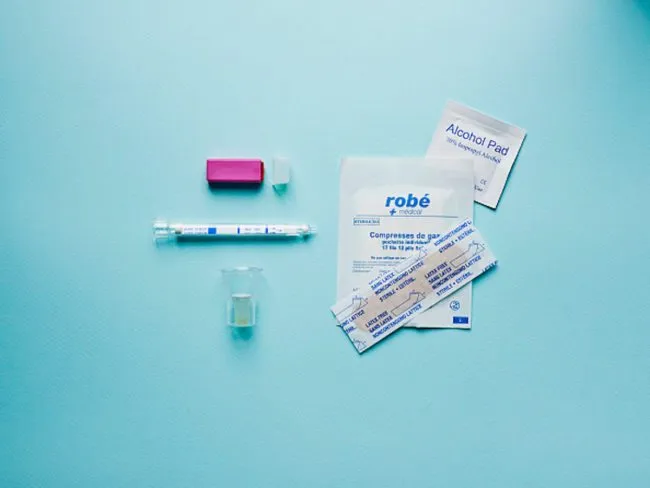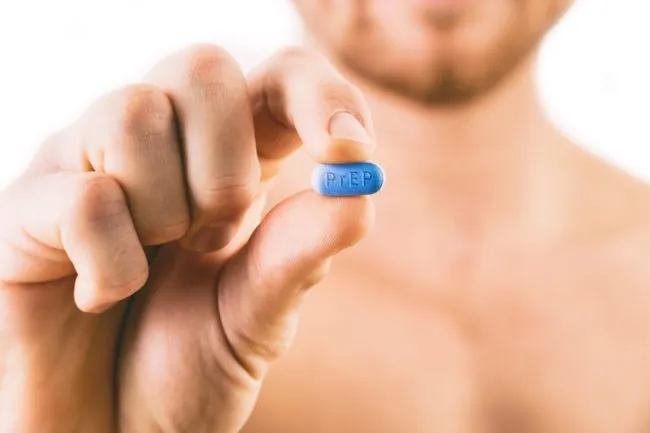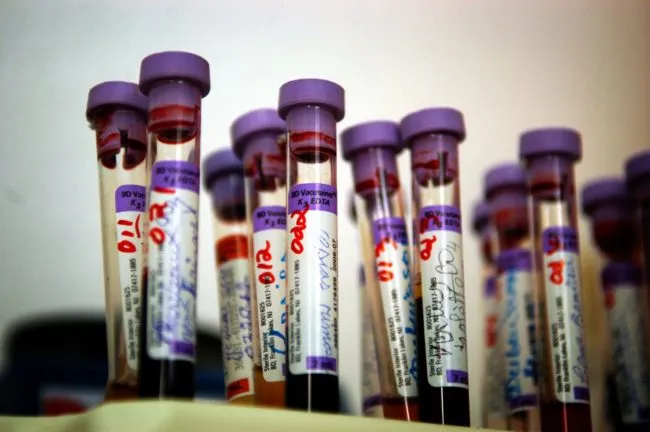South Korea approved PrEP but it will cost users nearly $5,000 a year

PrEP: Man holding a pill used for Pre-Exposure Prophylaxis (PrEP) to prevent HIV infection
South Korea has approved the use of PrEP (Pre-Exposure Prophylaxis) in the country but it will cost users nearly £5,000 a year.
The country’s Ministry of Food and Drug Safety approved Truvada for use as an HIV-preventative method for the first time.
Previously, the drug could only be used as a form of treatment for people who had already contracted the virus.
However, activists are concerned that although it has been approved those who are most at risk of contracting the virus will not start the medication because of the cost.
Just one pill will cost 13,720 won, which is approximately US$12.80.

HIV testing kits are available at doctors surgeries (Photo by: BSIP/UIG via Getty Images)
Related: A once-a-week HIV pill could soon be available
The cost of the daily drug would mount to $4672 a year.
The decision to approve the use of the drug comes as the rate of new HIV cases in the country increased by 43.2 percent between 2010 and 2016.
In the country, people who are HIV positive are 10 times more likely to attempt suicide.
Certain professions, including Foreign English teachers, are expected to take regular HIV tests to hold down their jobs.
However, testing is not talked about in the region.
A UNAIDS survey found that South Korea does not meet international standards when it comes to testing, with 42 percent of people not receiving proper counselling alongside their HIV test and 61.5 percent of people being tested without their knowledge (during other medical examinations).
The report by UNAIDS explained that “HIV is still a highly stigmatized disease” in South Korea, both by society and internalised self-stigma.

Pre-Exposure Prophylaxis (PrEP)
Related: What is PrEP and how can I get it? Everything you need to know about HIV-preventing drugs
The report states: “The high level of internalized stigma signifies that people living with HIV in South Korea are repeatedly exposed to the negative attitudes toward them.
“More than 70 percent of survey respondents stated that they felt that the public media’s views and remarks on them were derogatory.
“It is also important to note that 63.5 percent of people agreed with that religious groups contribute to spread negative views of people living with HIV.”
New Zealand just announced that it would publicly fund PrEP, meaning that a prescription would cost less than $2 a month.
From March 1st, the treatment will be rolled out to those who are most at risk of contracting HIV.
Previously, a prescription for the drug would cost US$731 a month, meaning that many users would import the medication.
However, getting it from overseas would still cost around US$36 a month.
By publicly funding Truvada, the cost of a quarterly prescription will fall to just US$3.60, which works out to $1.20 a month making it cheaper than in almost any other country in the world.
A leading health body in Australia recommended that the health service in the country should publicly fund the HIV-prevention medication following New Zealand’s announcement.

In LONDON, a major sexual health hub has launched a new scheme to provide access to the drug.
56 Dean Street, in central London, is now offering a prescription service for the drug called PrEP Shop.
An NHS funded trial of the drug, designed to assess demand, has already filled its quota, leaving many men looking for ways to access PrEP.
The PrEP Shop will provide a generic version of the drug for £55 a month for those who missed out on a spot in IMPACT, the official NHS trial.
The scheme is a first for the NHS as it prescribes a generic version of PrEP (in place of a more costly branded version, Truvada) outside the IMPACT trial.
The official website says: “We’ve created PrEP Shop to make it easier for you to buy generic HIV PrEP from someone you trust. By using the buying power of the NHS we aim to keep prices as affordable as we can.”

